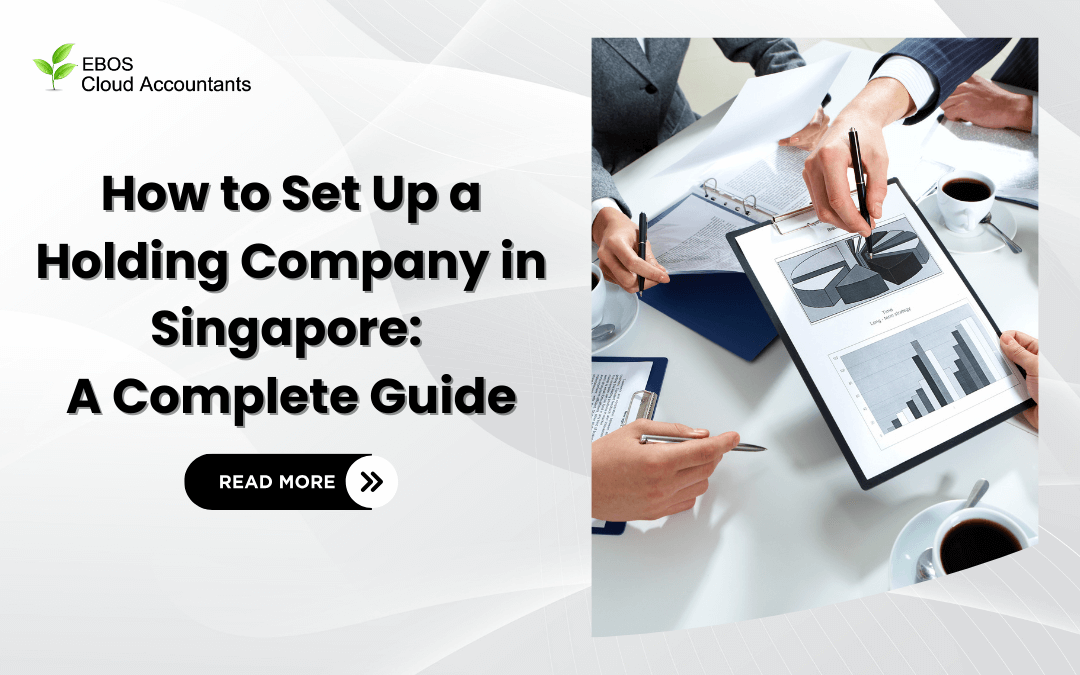Singapore is renowned for its business-friendly environment, robust legal framework, and strategic location. Setting up a holding company in Singapore can be a smart move for entrepreneurs and corporations looking to manage multiple subsidiaries, optimize tax structures, and access global markets. Here’s a comprehensive guide to help you navigate the process.
What is a Holding Company?
A holding company primarily exists to own and manage the shares of other companies. Unlike operational businesses, it does not produce goods or services directly but derives income from dividends, interest, or asset appreciation.
Benefits of a Singapore Holding Company
- Favorable Tax Regime:
- Singapore has a low corporate tax rate of 17%.
- It offers tax exemptions on foreign-sourced dividends, capital gains, and profits from qualifying subsidiaries.
- A wide network of Double Taxation Agreements (DTAs) simplifies cross-border transactions.
- Ease of Incorporation:
- Setting up a company in Singapore is straightforward, with clear and efficient regulations.
- Political and Economic Stability:
- Singapore’s stable economy and transparent policies make it a trusted base for global operations.
- Access to Global Markets:
- Singapore’s strategic location connects businesses to Asia and beyond, making it an ideal hub for regional operations.
Steps to Set Up a Holding Company in Singapore
- Decide on a Business Structure:
- The most common structure for a holding company in Singapore is a Private Limited Company (Pte Ltd).
- Register with ACRA:
- The Accounting and Corporate Regulatory Authority (ACRA) oversees company registration.
- Choose a unique company name and get it approved by ACRA.
- Prepare the necessary incorporation documents, including:
- A constitution (formerly known as Memorandum and Articles of Association)
- Details of directors, shareholders, and company secretary
- Appoint Key Personnel:
- At least one director must be a Singapore resident (citizen, permanent resident, or work pass holder).
- A qualified company secretary must be appointed within six months of incorporation.
- Set Up a Registered Office:
- Your holding company must have a local registered address in Singapore.
- Open a Corporate Bank Account:
- Choose a reputable bank in Singapore to manage your finances.
- Understand Compliance Requirements:
- File annual returns with ACRA.
- Submit corporate tax filings with the Inland Revenue Authority of Singapore (IRAS).
- Maintain accurate financial records.
Additional Considerations
- Funding Your Subsidiaries:
- Your holding company can finance its subsidiaries through equity investments or loans.
- Avoiding Common Pitfalls:
- Ensure compliance with anti-money laundering laws and other regulations.
- Work with legal and financial advisors to structure your company effectively.
- Applying for Licenses:
- While most holding companies don’t need additional licenses, check if your subsidiaries require specific permits based on their operations.
Why Work with Professionals?
Setting up a holding company in Singapore requires careful planning, especially if you’re dealing with cross-border operations. Engaging a corporate service provider or legal advisor ensures compliance and maximizes tax benefits.
Conclusion
A Singapore holding company is an excellent vehicle for businesses looking to centralize control, optimize tax efficiency, and expand globally. By understanding the setup process and leveraging professional advice, you can establish a strong foundation for your business empire. Whether you’re a seasoned entrepreneur or just starting, Singapore offers the perfect ecosystem to grow and manage your investments.
Check out our website at https://ebos-sg.com/ to explore more articles and discover how our Cloud Accountant Services can support you on your business.







